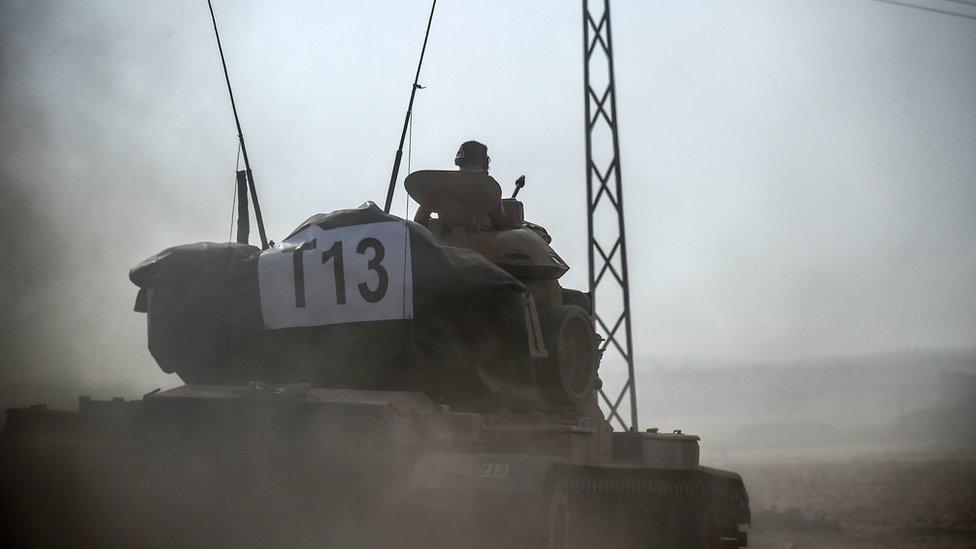Turkey 'ends' Euphrates Shield campaign in Syria
- Published
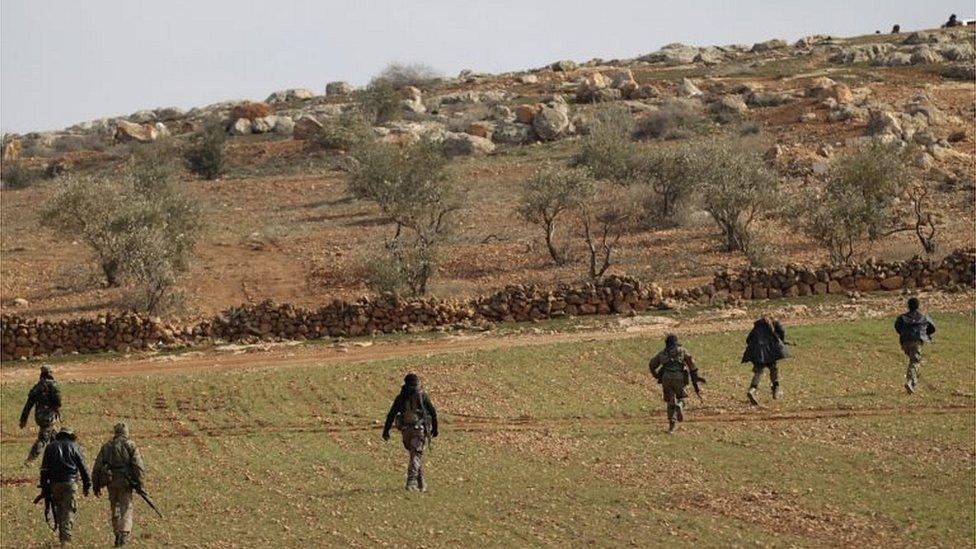
Turkish-backed rebels captured territory from so-called Islamic State, including Al-Bab
Turkey says it has "successfully" ended its seven-month Euphrates Shield military campaign in northern Syria.
But Prime Minister Binali Yildirim did not rule out new military operations and did not say whether Turkish troops would now leave Syria.
Turkey launched the offensive last August to push Islamic State militants away from its border and also to stop the advance of local Kurdish fighters.
Mr Yildirim spoke as the US secretary of state arrived in Turkey.
The Turkish government in Ankara has been angered by the willingness of the US to back Kurdish fighters in Syria.
Raqqa disagreements
"Operation Euphrates Shield has been successful and is finished. Any operation following this one will have a different name," Mr Yildirim said after Wednesday's meeting of the country's security council.
On 24 August, Turkish troops, tanks and planes crossed the border in what Ankara said was the operation to push back IS militants from a 100km (60 miles) stretch of the border.
The army and Turkish-backed Syrian rebels have captured several towns, including Jarablus, finally moving south to the strategic town of al-Bab.
The Turkish operation was also aimed at preventing the Kurdish Popular Protection Units (YPG) from gaining more ground in northern Syria.
Ankara fears this would fuel an insurgency being waged by the banned Kurdistan Workers' Party (PKK) in south-eastern Turkey.
The YPG is regarded by Turkey as a terrorist organisation and an extension of the PKK.

Operation's premature end - by Mark Lowen, BBC News, Istanbul
It was Turkey's biggest intervention in Syria since the war began: a ground operation to drive IS and Kurdish fighters back from its border.
After retaking Jarablus, Dabiq and al-Bab from the jihadists, Turkish officials warned the offensive would push the Kurdish militia out of Manbij, before moving south to Raqqa. But neither of those has happened.
It is possible Turkey has got cold feet after sustaining heavy losses in al-Bab. It may also be trying to please the US secretary of state, who was in Ankara on Thursday and was likely to reiterate that Washington would not drop its alliance with the Syrian Kurds.
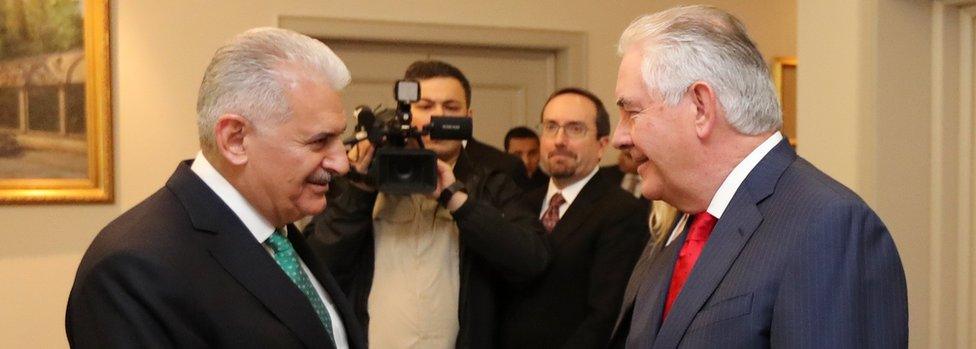
Rex Tillerson (R) met the Turkish prime minister on Thursday as the two countries tried to improve diplomatic relations
There may also be a link with Turkey's 16 April referendum on expanding the powers of President Recep Tayyip Erdogan, hoping to secure nationalist votes by presenting the operation as a success - and possibly trying to win back some Kurdish votes too.
Operation Euphrates Shield has ended prematurely. But the Turkish prime minister has not ruled out a new offensive under a different name - and maybe with different aims.

Mr Tillerson's meetings with President Recep Tayyip Erdogan and other senior Turkish officials come after months of difficult bilateral relations.
And disagreements are growing, principally over who should be involved in retaking the Syrian stronghold of Raqqa from IS.
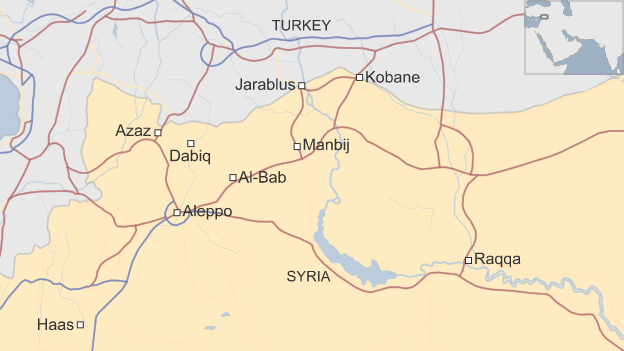
Turkey wants the US to drop its alliance with Kurdish fighters, but Washington says they are the most effective force, our correspondent says.
The Turkish government is also expected to push Mr Tillerson on its extradition request for Fethullah Gulen, the cleric living in Pennsylvania whom Ankara blames for last year's attempted coup.
The US insists it remains a judicial, rather than political decision.
- Published23 August 2016
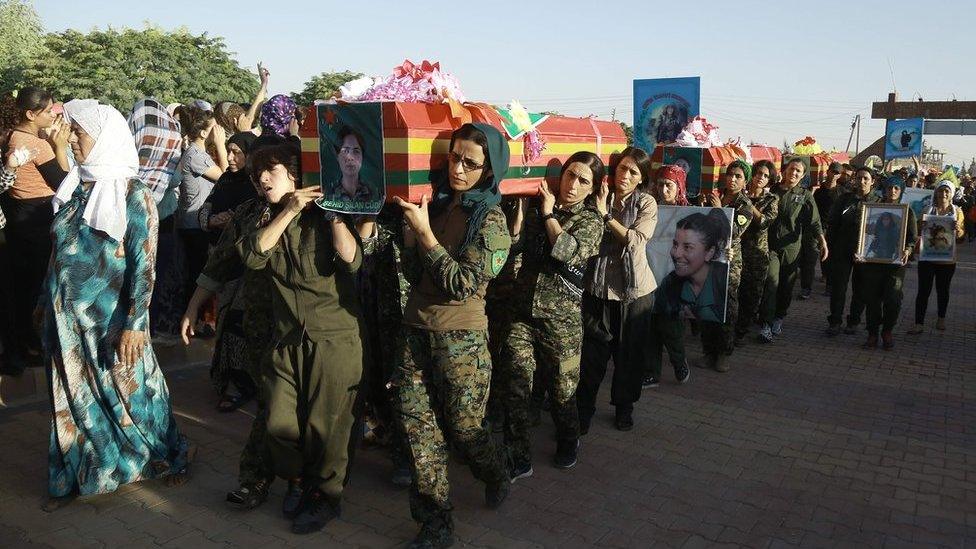
- Published9 February 2017
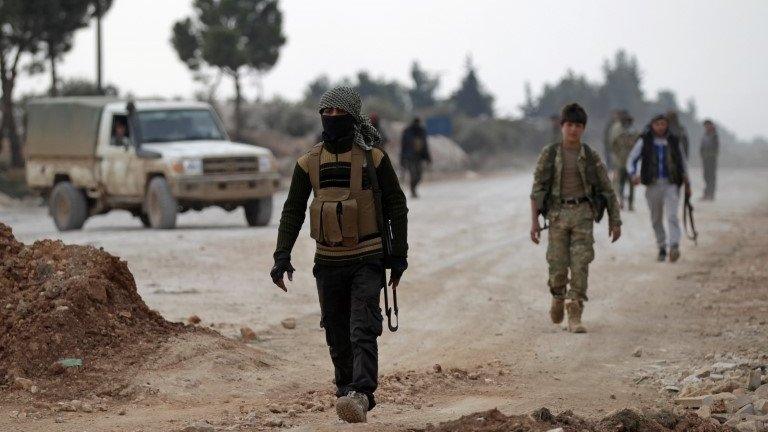
- Published24 August 2016
